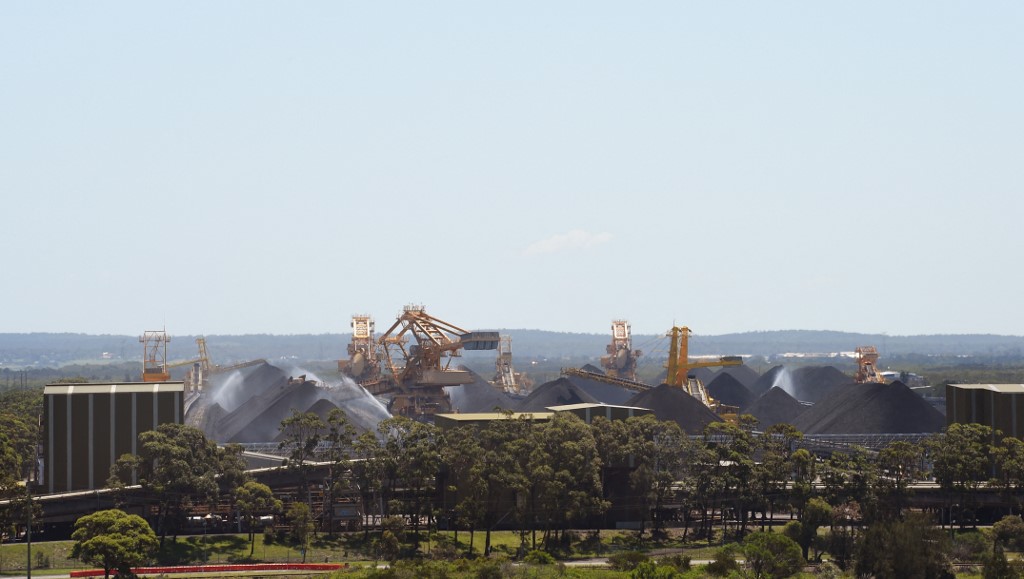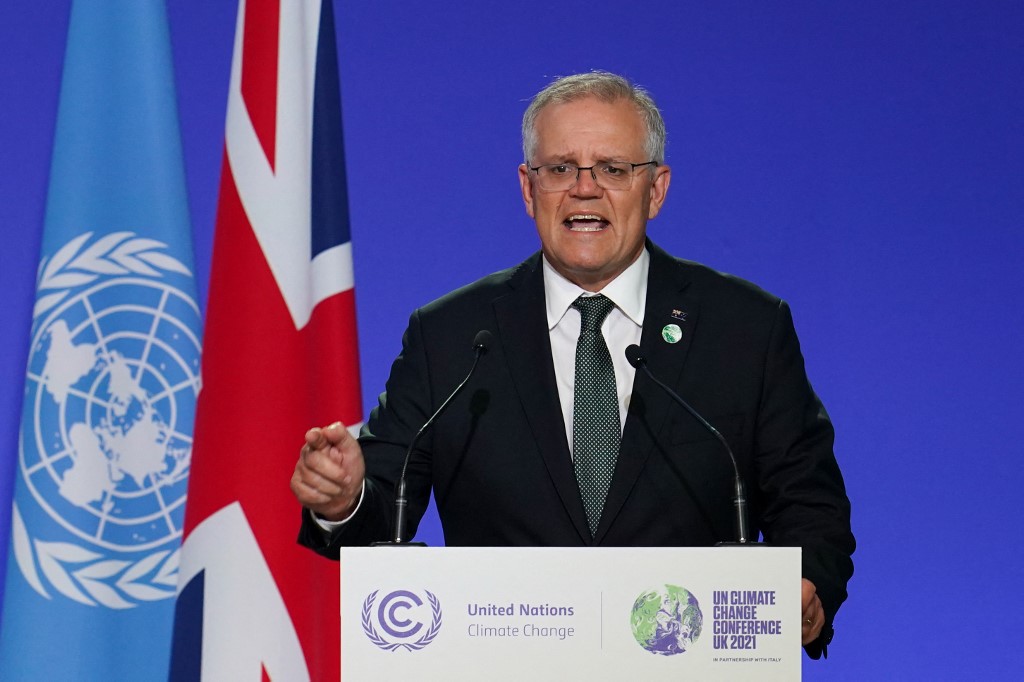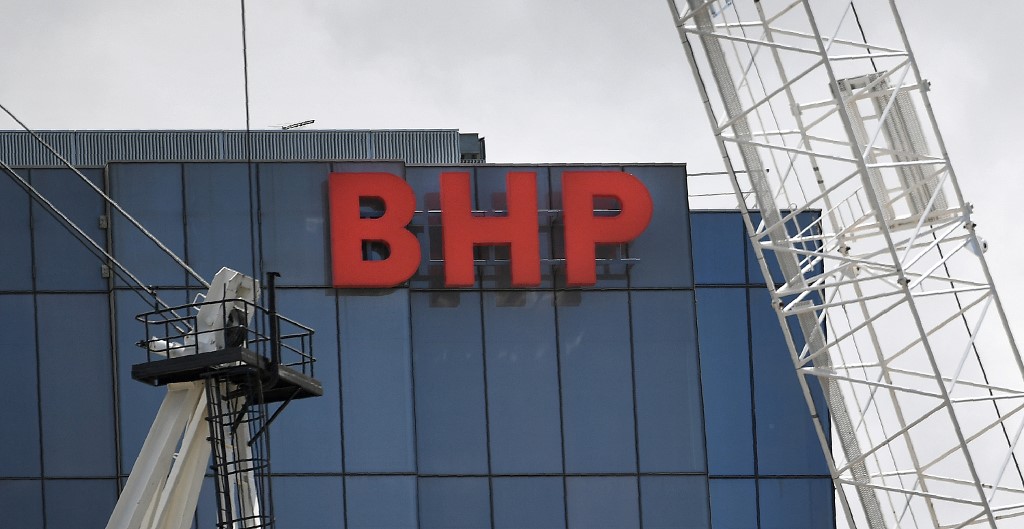
A photo taken on November 18, 2015, shows some of the coal operations at the Port of Newcastle as Australia plans to dramatically ramp up coal exports — which is the nation’s second most valuable export — to boost economic growth over the next decade despite climate change activists arguing new planned mines are “carbon bombs” incompatible with limiting temperature rises. As the world meets for climate change at talks in Paris, environmentalists say hopes of curbing global warming to less than two degrees Celsius (3.6 Farenheit) are incompatible with Australia’s coal expansion plans. (Photo by WILLIAM WEST / AFP)
SYDNEY, Australia (AFP) – Australia said Monday it will sell coal for “decades into the future” after spurning a pact to phase out the polluting fossil fuel to halt catastrophic climate change.
More than 40 countries pledged to eliminate coal use within decades during the COP26 UN climate summit in Glasgow, which aims to cap the warming of Earth since the Industrial Revolution to between 1.5 and 2.0 degrees Celsius.
Australia, along with some other major coal users such as China and the United States, did not sign up.
“We have said very clearly we are not closing coal mines and we are not closing coal-fired power stations,” Australian Minister for Resources Keith Pitt told national broadcaster ABC.
Defending Australia’s decision, Pitt said Australia had some of the world’s highest quality coal.
“And that is why we will continue to have markets for decades into the future. And if they’re buying… well, we are selling.”
Demand for coal is expected to rise until 2030, the minister claimed.
“If we aren’t to win that market, somebody else will,” Pitt added.
“I would much rather it be Australia’s high-quality product, delivering Australian jobs and building Australia’s economy than coming from Indonesia or Russia or elsewhere.”
Australia is one of the world’s largest producers of coal and natural gas, but has also suffered under increasingly extreme climate-fuelled droughts, floods and bushfires in recent years.

Prime Minister Scott Morrison’s government unveiled last month a 2050 net zero emissions target but the plan was criticised for lacking detail and relying heavily on as-yet-unknown technological breakthroughs.
The Minerals Council of Australia, which represents large miners such as BHP and Rio Tinto, has said a 2050 target is achievable through significant investment in technology.
Pitt said some 300,000 Australians’ jobs were reliant on the coal sector. The Minerals Council of Australia itself says the coal industry directly employs 50,000 workers while supporting another 120,000 jobs.
Major mining groups such as BHP say they are exiting the most polluting fossil fuels.

In its latest divestment, BHP announced Monday it had sold its 80 percent stake in a metallurgical coal mine in the eastern state of Queensland to Stanmore Resources for at least US$1.2 billion.
“As the world decarbonises, BHP is sharpening its focus on producing higher quality metallurgical coal sought after by global steelmakers to help increase efficiency and lower emissions,” BHP head of Australian mining Edgar Basto said in a statement.
© Agence France-Presse








